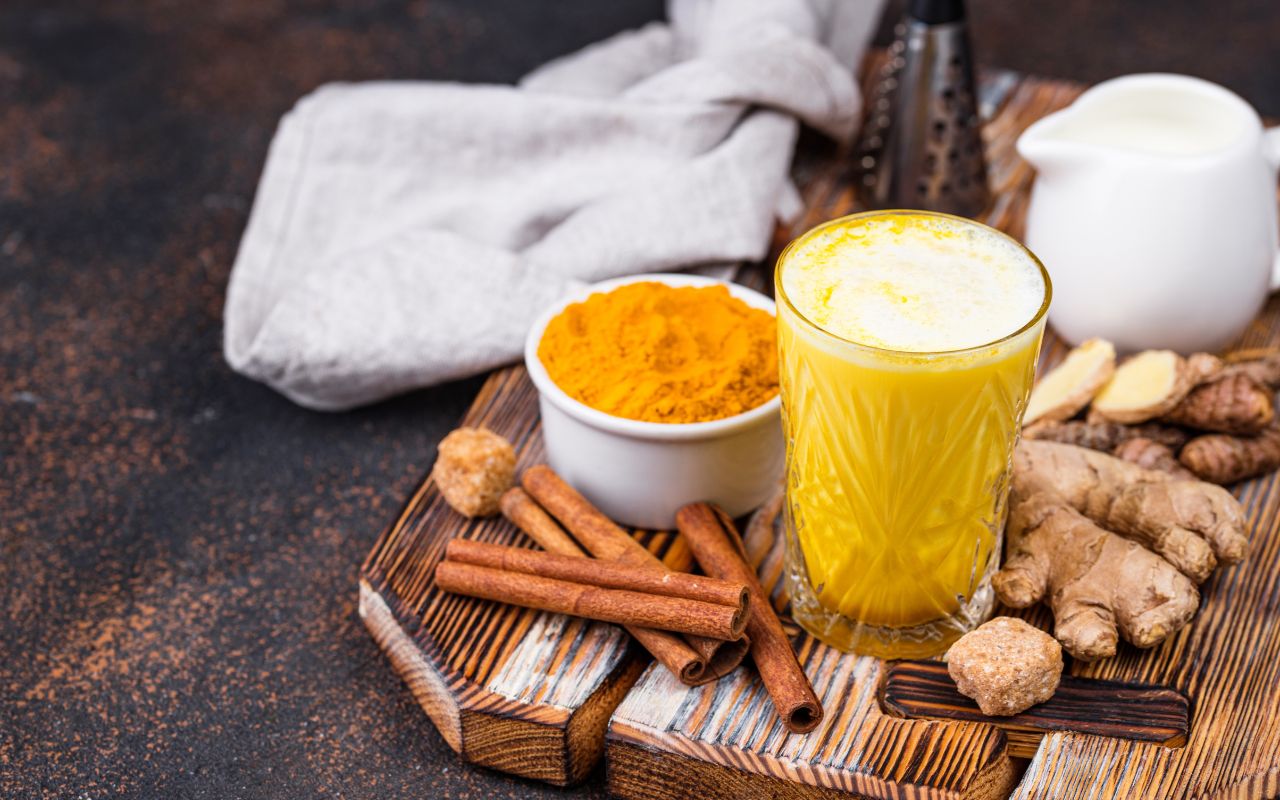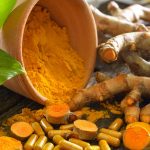Turmeric, a golden-yellow spice derived from the rhizomes of Curcuma longa, has been celebrated for centuries in traditional medicine, particularly in Ayurveda and Traditional Chinese Medicine. It's known for its vibrant color, distinct flavor, and, most importantly, its myriad health benefits. In recent years, scientific research has increasingly validated traditional claims, uncovering the potential of turmeric and its active component, curcumin, to offer significant health advantages.
Turmeric's journey from kitchen staple to medicinal powerhouse is facilitated by its high concentration of curcuminoids—bioactive compounds that exhibit potent anti-inflammatory, antioxidant, and anti-cancer properties. This article delves into turmeric's extensive benefits, the scientific evidence backing its uses, potential risks, and practical considerations for incorporating it into your daily regimen.
Turmeric's Health Benefits: An Overview
Anti-Inflammatory and Antioxidant Properties
Curcumin, the primary bioactive substance in turmeric, is renowned for its anti-inflammatory activities. Chronic inflammation is a contributing factor to many common Western diseases, including heart disease, cancer, metabolic syndrome, Alzheimer's disease, and various degenerative conditions. Curcumin's ability to modulate numerous molecular targets and signaling pathways makes it a powerful tool in counteracting inflammation.
Furthermore, curcumin is a potent antioxidant that can neutralize free radicals due to its chemical structure. It also enhances the activity of the body's antioxidant enzymes, thus amplifying its antioxidant effects. These properties make turmeric especially beneficial for inflammation and oxidative stress conditions.
Arthritis and Joint Health
Arthritis, a condition marked by inflammation of the joints, affects millions of people worldwide. Studies have shown that turmeric can play a significant role in managing arthritis symptoms. For instance, a randomized, controlled comparator study involving 367 adults with primary knee osteoarthritis demonstrated that curcumin extract (1,500 mg/day) was as effective as ibuprofen (1,200 mg/day) in improving pain and function. Notably, the curcumin group reported fewer adverse effects, suggesting a safer profile for the long-term management of arthritis.
A 2016 systematic review and meta-analysis of eight randomized controlled trials further supported the efficacy of curcumin in reducing pain and improving function in patients with osteoarthritis. These studies underscore curcumin's potential as a therapeutic agent for arthritis, providing a natural alternative to conventional anti-inflammatory drugs.
Cognitive Function and Neuroprotection
Turmeric has also garnered attention for its neuroprotective effects, particularly in the context of age-related cognitive decline and neurodegenerative diseases such as Alzheimer's. Curcumin's anti-inflammatory and antioxidant properties contribute to its ability to cross the blood-brain barrier and positively affect brain health.
In a six-month randomized, double-blind, placebo-controlled pilot clinical trial, curcumin showed promise in improving symptoms in patients with Alzheimer's disease. Compared to the placebo group, participants who received curcumin supplements exhibited better cognitive function and reduced amyloid plaque buildup. These findings suggest that turmeric could be a valuable addition to strategies to prevent or slow the progression of neurodegenerative conditions.
Cardiovascular Health
Heart disease is the leading cause of death globally, and inflammation plays a pivotal role in its development. Curcumin's anti-inflammatory properties make turmeric a beneficial addition to cardiovascular health strategies. It can improve endothelial function and the lining of the blood vessels, which is crucial for regulating blood pressure and preventing heart disease.
Additionally, curcumin has been found to reduce levels of LDL (bad) cholesterol and increase HDL (good) cholesterol, further supporting heart health. By addressing several key risk factors, turmeric may help reduce the overall risk of heart disease.
Digestive Health
Turmeric has long been used to support digestive health. Its anti-inflammatory and antioxidant properties can soothe the digestive tract and reduce symptoms of digestive disorders. Studies have shown that curcumin can alleviate symptoms of inflammatory bowel diseases (IBDs) such as Crohn's disease and ulcerative colitis by reducing intestinal inflammation.
In a 2018 systematic review and meta-analysis, curcumin significantly improved clinical remission, clinical response, and endoscopic remission in patients with ulcerative colitis when used as an adjuvant therapy. These findings highlight the potential of turmeric in managing chronic inflammatory conditions of the digestive system.
Skin Health
Turmeric's anti-inflammatory, antimicrobial, and antioxidant properties make it beneficial for skin health as well. In traditional medicine, turmeric has been used to treat various skin conditions, including acne, psoriasis, and eczema. Modern research supports these uses, showing that topical application of turmeric can improve skin conditions by reducing inflammation and protecting against infection.
A study published in the Journal of Cosmetic Dermatology found that a turmeric tonic significantly improved symptoms in patients with scalp psoriasis compared to a placebo. These results suggest that turmeric could be an effective natural remedy for treating inflammatory skin conditions.
Practical Considerations for Turmeric Use
Dosage and Bioavailability
One of the significant challenges with turmeric is its poor bioavailability, which means the body struggles to absorb curcumin efficiently. This is due to its rapid metabolism in the liver and intestinal wall. However, specific formulations and techniques can enhance its absorption.
Taking curcumin with black pepper can significantly increase its absorption. Piperine, a compound in black pepper, enhances curcumin absorption by 2,000%. Additionally, curcumin is fat-soluble, so consuming it with fatty meals can improve its bioavailability.
Standardized turmeric extracts that contain high concentrations of curcumin are available in various forms, such as capsules, tablets, and powders. These supplements often include additional compounds like piperine to enhance absorption. Dosages in studies typically range from 500 to 2,000 mg of turmeric extract per day, containing up to 95% curcuminoids.
Safety and Side Effects
While turmeric is generally safe for most people when used in amounts commonly found in foods, high doses or long-term use can cause gastrointestinal issues such as nausea and diarrhea. Some individuals may also experience allergic reactions, including rashes and itching. In rare cases, turmeric can cause more severe reactions like anaphylaxis.
Turmeric may interact with certain medications, including anticoagulants, antiplatelet agents, and drugs metabolized by the liver's cytochrome P450 enzymes. Therefore, individuals taking these medications should consult their healthcare provider before starting a turmeric supplement.
Pregnant and breastfeeding women should avoid using turmeric supplements due to potential uterine stimulant effects. Furthermore, individuals with gallstones or bile duct obstruction should also exercise caution, as turmeric can aggravate these conditions.
Culinary Uses
Incorporating turmeric into your diet can be a delicious and healthful way to reap its benefits. Turmeric is a key ingredient in curry powders and is commonly used in Indian, Southeast Asian, and Middle Eastern cuisines. It imparts a warm, bitter flavor and a golden color to dishes.
Here are some practical ways to add turmeric to your diet:
- Golden Milk: A popular beverage made with milk (dairy or plant-based), turmeric, black pepper, and other spices like cinnamon and ginger.
- Smoothies: Add a teaspoon of turmeric powder to your favorite smoothie for an antioxidant boost.
- Soups and Stews: Add turmeric to the flavor and health benefits of soups and stews.
- Rice and Grain Dishes: Add turmeric to rice, quinoa, or other grains for a colorful and flavorful side dish.
- Roasted Vegetables: Sprinkle turmeric on vegetables before roasting them for added flavor and nutrition.
Turmeric in Traditional Medicine
Turmeric's use in traditional medicine dates back thousands of years. Ayurveda is considered a powerful herb for balancing the doshas (body energies) and is used to treat various conditions, including respiratory issues, liver disorders, skin diseases, and wounds. It is also valued for its ability to purify the blood and promote overall well-being.
In Traditional Chinese Medicine (TCM), turmeric moves Qi (energy) and blood. It is commonly prescribed for pain and inflammation conditions, such as arthritis and menstrual pain. Turmeric's warming properties make it suitable for treating cold and damp conditions.
Modern scientific research is increasingly validating these traditional uses of turmeric, bridging the gap between ancient wisdom and contemporary medicine.
Conclusion
Turmeric is more than just a culinary spice; it is a potent medicinal herb with many health benefits. Its anti-inflammatory, antioxidant, and antimicrobial properties make it helpful in preventing and managing various health conditions, from arthritis to digestive disorders and beyond. However, while turmeric is generally safe for most people, it is essential to use it responsibly and consult a healthcare provider, especially if you have underlying health conditions or are taking medications.
With its rich history in traditional medicine and growing body of scientific evidence, turmeric has rightfully earned its place as a valuable addition to your kitchen and medicine cabinet. By incorporating turmeric into your daily routine, you can tap into its hidden power and enhance your overall health and well-being.









